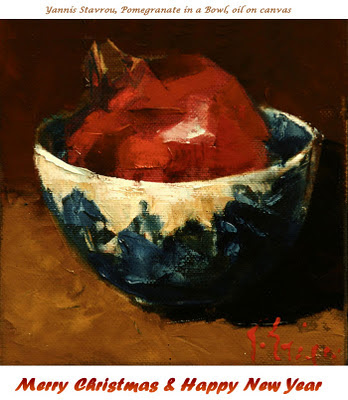I’m dying of thirst beside the fountain,Hot as fire, and with chattering teeth:In my own land, I’m in a far domain:Near the flame, I shiver beyond belief:Bare as a worm, dressed in a furry sheathe,I smile in tears, wait without expectation...
François Villon (1431-1463)
Francois VillonBallade: Du Concours de BloisI’m dying of thirst beside the fountain,
Hot as fire, and with chattering teeth:
In my own land, I’m in a far domain:
Near the flame, I shiver beyond belief:
Bare as a worm, dressed in a furry sheathe,
I smile in tears, wait without expectation:
Taking my comfort in sad desperation:
I rejoice, without pleasures, never a one:
Strong I am, without power or persuasion,
Welcomed gladly, and spurned by everyone.
Nothing is sure for me but what’s uncertain:
Obscure, whatever is plainly clear to see:
I’ve no doubt, except of everything certain:
Science is what happens accidentally:
I win it all, yet a loser I’m bound to be:
Saying: ‘God give you good even!’ at dawn,
I greatly fear I’m falling, when lying down:
I’ve plenty, yet I’ve not one possession,
I wait to inherit, yet I’m no heir I own,
Welcomed gladly, and spurned by everyone.
I never take care, yet I’ve taken great pain
To acquire some goods, but have none by me:
Who’s nice to me is one I hate: it’s plain,
And who speaks truth deals with me most falsely:
He’s my friend who can make me believe
A white swan is the blackest crow I’ve known:
Who thinks he’s power to help me, does me harm:
Lies, truth, to me are all one under the sun:
I remember all, have the wisdom of a stone,
Welcomed gladly, and spurned by everyone.
Merciful Prince, may it please you that I’ve shown
There’s much I know, yet without sense or reason:
I’m partial, yet I hold with all men, in common.
What more can I do? Redeem what I’ve in pawn,
Welcomed gladly, and spurned by everyone.
Ballade du concours de BloisJe meurs de seuf auprès de la fontaine,
Chaud comme feu, et tremble dent à dent ;
En mon pays suis en terre lointaine ;
Lez un brasier frissonne tout ardent ;
Nu comme un ver, vêtu en président,
Je ris en pleurs et attends sans espoir ;
Confort reprends en triste désespoir ;
Je m'éjouis et n'ai plaisir aucun ;
Puissant je suis sans force et sans pouvoir,
Bien recueilli, débouté de chacun.
Rien ne m'est sûr que la chose incertaine ;
Obscur, fors ce qui est tout évident ;
Doute ne fais, fors en chose certaine ;
Science tiens à soudain accident ;
Je gagne tout et demeure perdant ;
Au point du jour dis : " Dieu vous doint bon soir ! "
Gisant envers, j'ai grand paour de choir ;
J'ai bien de quoi et si n'en ai pas un ;
Echoite attends et d'homme ne suis hoir,
Bien recueilli, débouté de chacun.
De rien n'ai soin, si mets toute ma peine
D'acquérir biens et n'y suis prétendant ;
Qui mieux me dit, c'est cil qui plus m'ataine,
Et qui plus vrai, lors plus me va bourdant ;
Mon ami est, qui me fait entendant
D'un cygne blanc que c'est un corbeau noir ;
Et qui me nuit, crois qu'il m'aide à pourvoir ;
Bourde, verté, aujourd'hui m'est tout un ;
Je retiens tout, rien ne sait concevoir,
Bien recueilli, débouté de chacun.
Prince clément, or vous plaise savoir
Que j'entends mout et n'ai sens ne savoir :
Partial suis, à toutes lois commun.
Que sais-je plus ? Quoi ? Les gages ravoir,
Bien recueilli, débouté de chacun.





























